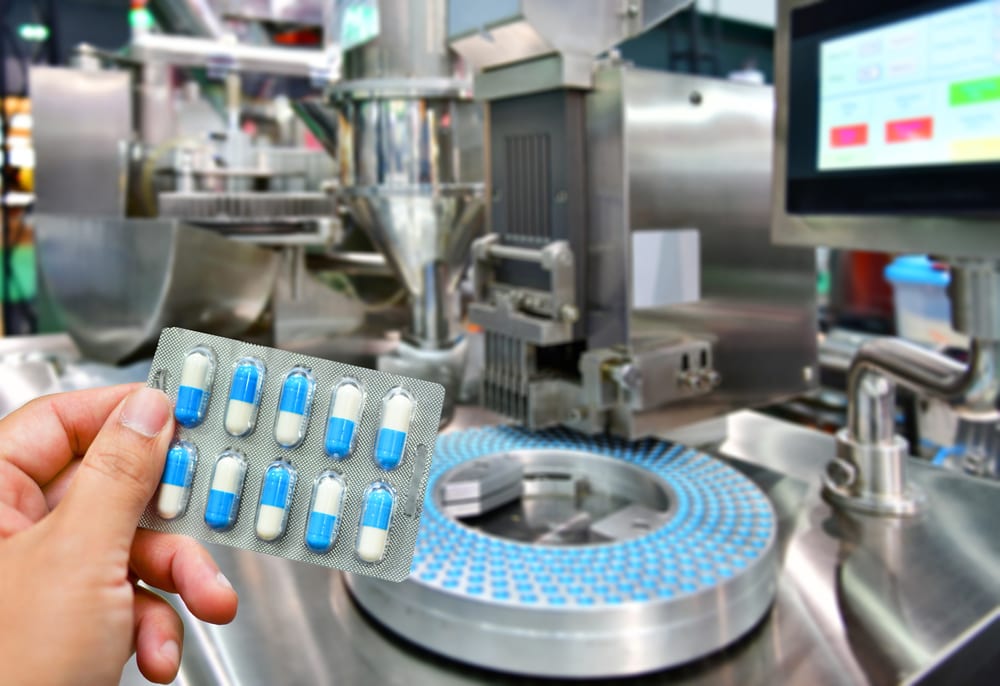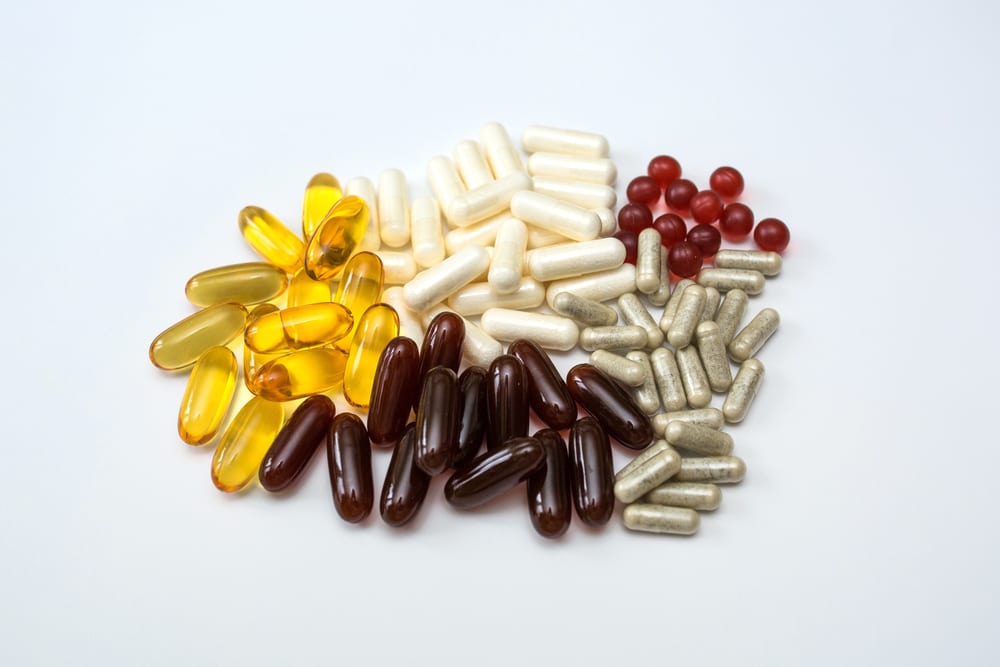
There are many kinds of nutraceuticals! Our favorite fortified breakfast cereals and bio-yogurts are actually nutraceuticals.
Maybe you’ve noticed the increase of medicinal supplements on your supermarket shelves. Nutraceuticals are gaining in popularity because they have shown to possibly have a positive impact on a person’s health and well being.
The list of nutraceuticals added to shelves is increasing all the time as consumer demand rises.
We can help you understand exactly what nutraceuticals are. We’ve made nutraceuticals simple.
What Are Nutraceuticals?
The definition of nutraceuticals also varies from country to country. Simply put, nutraceuticals are substances that have health benefits. They are either a food product such as fortified cereal or come from food like a dietary supplement.
Nutraceuticals were first defined by Doctor Stephen DeFelice in 1989. Dr. DeFelice is also the chairman and founder of the ‘Foundation for Innovation in Medicine’ in New Jersey. (1)
The nutraceutical industry has evolved since Dr. DeFelice’s original definition. It is an incredibly technical and scientifically-oriented field of biological and plant-based study that can be complicated to understand.
The main thing that you need to know is that nutraceuticals aim to improve a person’s health. Some nutraceuticals may have a particular aim or purpose, such as delaying the aging process or supporting the digestive system.
As definitions vary from country to country, you might be confused about how they are regulated. In the United States, nutraceutical products are regulated by different rules compared to usual food products (2). It’s important to work with a manufacturer who has experience in consistently making good quality nutraceuticals.
Why Do Consumers Want Nutraceuticals?

For those who have a health problem, taking a nutraceutical may help them improve their symptoms. Nutraceuticals are considered to be a healthy option when it comes to the prevention of disease. They can also help to improve a person’s overall well being.
Ailment Prevention: Did you know that nutraceuticals are also famous for their anticancer properties? According to the World Health Organization (WHO), around a third of all deaths from cancer could be prevented if our lifestyle changed. (4) Nutraceuticals may help to support consumers in changing their lifestyle by boosting their nutrient intake as well as potentially benefiting their overall well being.
Anti-Aging: Your nutraceutical product can have anti-aging effects with the right ingredients. Studies have found that ingredients such as caffeine may have anti-aging properties (5) Also, collagen has been one of the most popular beauty products over the last few years.
Convenient: Taking a nutraceutical regularly may benefit our health. If we are to want to take them regularly they must be accessible and easy to take. Thankfully, they are just that. They come in many forms of encapsulation and they can be customized in so many different ways that make them very convenient and easy to take.
Do Nutraceuticals Contain Nutrients?
We all know that a balanced diet is one of the best ways to make sure we are healthy. A healthy diet should contain all the nutrients our bodies need to keep functioning well, but sometimes we may struggle to obtain the nutrients we need. Consumers may also want to give their bodies an extra boost to potentially avoid health problems later.
If your customers have recently suffered an illness or are managing an injury, they are more likely to consider a nutraceutical to be an appealing product. These consumers are looking to support their bodies and to heal their injuries. Our bodies need more nutrients when we are sick or injured. Your nutraceutical can help to ease their concerns and support their well being.
While American consumers often take prescription drugs, they are interested in other ways to support their health. Prescription drugs are not the same as nutraceuticals. Prescription drugs are man-made and help the body combat sickness. According to the Centers for Disease Control and Prevention, nearly half of Americans take at least one prescription drug. More than 20% using three or more prescription drugs. (6)
Consumers may be wary of the side effects of prescription drugs. Your customers may be looking for a nutraceutical to help them support their body’s nutritional needs alongside their prescription drugs to meet their specific medical needs.
But which type of nutraceutical is best for your customers?
Categories of Nutraceuticals
Most often nutraceuticals and related products are grouped in the following categories: dietary supplements, functional food, and medicinal food.
Dietary Supplement: These are products that contain nutrients derived from food. Dietary supplements are packaged into a variety of forms such as powders or capsules. These supplements may contain a single flagship ingredient and be marketed for its purity and potency. Others contain a mixture as a beneficial concoction that may be multi-purpose or contain a mix that consumers find appealing. As well as nutritional benefits, nutraceutical dietary supplements may be used for certain health conditions such as menopausal symptoms or to support the digestive system.
Functional foods: Functional foods are different from pharmaceuticals and supplements. They are not in a tablet or pill form but typically look like any other food. They are modified to have more health benefits for consumers. They may also have added ingredients to give the food the desired nutritional value (7).
Medical and medicinal foods: These foods are used to help the nutritional management of a specific ailment. For example, medical foods may be used to help ease inflammation. These foods are also used to help to protect against numerous age-related or chronic ailments. These therapeutic agents should be consumed and used under the supervision of a qualified physician. A medical evaluation of the patient’s nutritional requirements can help to find which medical food is right for them.
The Components of Nutraceuticals

So nutraceuticals have potential health benefits and come in different forms. But where do the ingredients come from? To understand nutraceuticals, you have to understand the different ingredients that are commonly used to make them.
Some of the different attributes of ingredients used in nutraceuticals include:
Dietary fiber: Found naturally in plants, dietary fiber is an important part of a healthy diet. These carbohydrates have beneficial effects on our health and support our digestive system. The recommended daily intake for fiber as defined by the Dietary Reference Intake (DRI) is 38 grams/day for adult men and 25 grams/day for adult women. (8)
Probiotics: While probiotics can be found naturally in our body, we can take probiotics to help keep our gut healthy. Probiotics are live bacteria and yeasts that are necessary for the effective functioning of the digestive system. A scientific review found that probiotic intake could have potential benefits in the treatment of diarrhea (9).
Polyunsaturated fatty acids (PUFAs): This category includes fatty acids you may be familiar with such as omega-3 and omega-6. These phytochemicals play an important role as healthy dietary bioactive compounds. Having a balanced PUFA intake supports many aspects of our immunity and metabolism. These essential fatty acids aren’t made in the human body. We get them from our diet. Taking a nutraceutical can help someone get these nutrients. (10)
Antioxidants: Antioxidants protect us from cell damage caused by free radicals. But what are free radicals? Research has found that oxygen is highly reactive and can potentially form into a “free radical” molecule. These molecules can attack healthy cells and make them less healthy by damaging their form and function. (11) To neutralize free radicals and to stay healthy, consumers may consider taking a nutraceutical with antioxidant properties.
Polyphenols: These are naturally found in plant-based foods such as berries, sweet potatoes, brown rice, lentils, tea, and more. Polyphenols actually protect plants from UV radiation and pathogens. There are hundreds of Polyphenols, but one review found that increasing flavonoid intake may help to reduce someone’s risk for type 2 diabetes (12).
Spices: Spices such as turmeric and curcumin are popular in the nutraceutical industry. Consumers are driving a growing demand for traditional Indian spices. One of the most popular spices of choice is curcumin. Studies have found that turmeric has multiple benefits as an anti-inflammatory and antioxidant (13). Your consumers may also be interested in a spice mixed nutraceutical to increase immune system health and prevent coughs.
Types of Nutraceuticals: Traditional and Nontraditional

There are two types of nutraceuticals: traditional and nontraditional. Some consumers prefer nutraceuticals sourced directly from nature without any changes to their natural form. Others are looking for something modified; nontraditional nutraceuticals.
Common traditional nutraceuticals include herbs and phytochemicals. These herbs are often popular for their claims of helping to prevent ailments and support the immune system. Your consumers are looking for a “pure” ingredient from nature to support their health. But which herbs should you choose? We can help you understand which ingredients your customers are interested in depending on their needs. For example:
- Stress: Your customers may enjoy lavender as an anti-stress herb and sleep aid.
- Inflammation: Willow bark could be what your consumers need. Willow bark may have anti-inflammatory and antiarthritic properties.
- Colds: Peppermint is popular for its familiar flavor and immune system support it may provide, particularly for colds and the flu.
Nontraditional Nutraceuticals
Nontraditional nutraceuticals include fortified foods and GMO crops. Your consumers are often looking for convenient ways to improve their health by eating foods rather than tablets. Nontraditional nutraceuticals may be fortified in a laboratory or bred in agriculture for an optimized nutritional profile. For example, the bread and milk we eat is often fortified to give us essential nutrients such as vitamin D. Basic foods such as bread and cheese become much more nutritionally beneficial when fortified. Perhaps your customers are looking for foods they enjoy with extra health benefits, then this is your choice.
Nutraceutical Products
Now you have an idea on the type of ingredients your consumers may be interested in, you will have to choose the form of the product. Our team can help you decide on the formulation of your product. But what are the different forms available?
- Powder: Popular with consumers looking for a nutraceutical they can add to their daily diet easily. Powdered nutraceuticals may be flavored to be more appealing as a smoothie addition.
- Gummy Vitamins: An excellent choice for children or for those who dislike the texture of regular pills, gummy vitamins have also risen in popularity for their sweet tastes.
- Capsules: A straight-forward and tasteless product, capsule supplements are easy for consumers to swallow. Potent ingredients are not off-putting to consumers when they are protected by the capsule.
- Tablets: Known well across most demographics, tablets are an excellent choice for their customizable shape and color.
- Softgels: Best for oil and other liquid ingredients, softgels are becoming more popular.
Nutraceuticals and Supplements
The nutraceutical market is set to rise even further. By 2027, the nutraceutical market will reach USD 722.49 billion according to Grand Wise Research (14). This research cites the U.S as one of the biggest growing markets of the industry.
Nutraceuticals and supplements are a rising trend that will only become more popular as consumers look for ways to improve their health.
Nutraceuticals are biologically active components. They are varied and complex. Nutraceuticals may use ingredients such as essential minerals, vitamins, herbs, and fatty acids. These ingredients play a vital role in human health and longevity. Сonsumer confidence is growing in this industry and demand shows no sign of slowing.
Manufacture Your Supplements With SMP Nutra
Looking to start selling nutraceutical supplements? Having high-quality supplements is crucial to the success of this venture. SMP Nutra is a leading supplement manufacturing facility that can manufacture any type of supplement.
We are capable of producing capsules, softgels, tablets, gummies, and more. We also offer design services to make your supplement look professional and attractive.
References:
- https://www.pharmaceutical-journal.com/1-what-is-a-nutraceutical/20002095.article
- https://www.fda.gov/food/dietary-supplements
- https://www.ncbi.nlm.nih.gov/pmc/articles/PMC6213446/
- https://www.who.int/cancer/resources/keyfacts/en/
- https://www.ncbi.nlm.nih.gov/pmc/articles/PMC6806606/
- https://www.cdc.gov/nchs/fastats/drug-use-therapeutic.htm
- https://academic.oup.com/ajcn/article/71/6/1654S/4729607
- https://health.gov/sites/default/files/2019-09/2015-2020_Dietary_Guidelines.pdf
- https://www.ncbi.nlm.nih.gov/pmc/articles/PMC3105609/#bibr7-1756283X11399115
- https://www.ncbi.nlm.nih.gov/pmc/articles/PMC6950146/
- https://www.researchgate.net/publication/323834599_A_review_on_nutraceuticals_Classification_and_its_role_in_various_disease
- https://www.ncbi.nlm.nih.gov/pmc/articles/PMC5572601/
- https://www.ncbi.nlm.nih.gov/pmc/articles/PMC5664031/
- https://www.grandviewresearch.com/press-release/global-nutraceuticals-market

